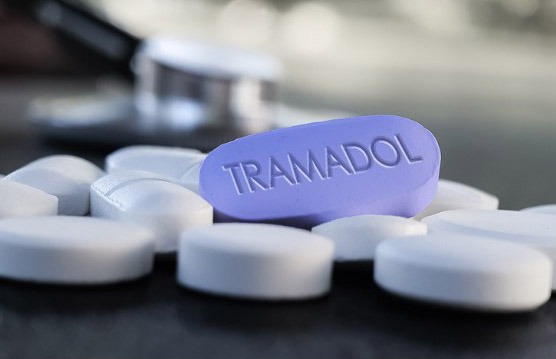Pain Drug and Antidepressant Combo Found to Increase Seizure Risk in Older Adults
Nikhil Prasad Fact checked by:Thailand Medical News Team Oct 09, 2025 4 months, 5 days, 10 minutes ago
Medical News: New study highlights overlooked danger in common prescriptions
A new study led by researchers from The Ohio State University has revealed that combining a commonly prescribed painkiller, tramadol, with certain antidepressants significantly increases the risk of seizures among older adults, particularly those living in nursing homes. The findings raise fresh concerns about drug safety in elderly populations who often take multiple medications simultaneously. In this
Medical News report we simplify the findings to help readers understand the health implications.
 Pain Drug and Antidepressant Combo Found to Increase Seizure Risk in Older Adults
How the research was conducted
Pain Drug and Antidepressant Combo Found to Increase Seizure Risk in Older Adults
How the research was conducted
The researchers analyzed data from more than 70,000 nursing home residents aged 65 and above who were taking both tramadol and antidepressants over a ten-year period. They divided participants into two groups — those who began tramadol treatment first and later added antidepressants, and those who were already on antidepressants before being prescribed tramadol. The team paid particular attention to antidepressants that inhibit the liver enzyme CYP2D6, which helps the body process tramadol. When this enzyme is blocked, tramadol can build up to dangerous levels in the bloodstream, potentially triggering seizures.
Clear signs of increased seizure rates
The results were alarming. Among individuals who took tramadol before adding antidepressants, seizure incidents reached around 16 per 100 person-years. However, those who used CYP2D6-inhibiting antidepressants such as fluoxetine, paroxetine, or bupropion experienced higher rates of about 18 per 100 person-years. In the group who were already taking antidepressants before starting tramadol, seizure rates rose to 20 per 100 person-years, and climbed even further to 22 per 100 person-years when CYP2D6-inhibiting drugs were involved. This demonstrates a consistent rise in seizure risk of roughly 6 to 9 percent whenever these two drug classes are combined. The researchers also found that another opioid painkiller, hydrocodone, did not show this same risk when taken with similar antidepressants, suggesting the problem is unique to tramadol’s chemical and metabolic pathway.
Why these findings matter
Older adults are particularly vulnerable because aging slows the body’s ability to break down medications, and many are already on complex drug regimens. A buildup of tramadol in the system can overstimulate the nervous system and lower the brain’s seizure threshold. For doctors, these findings underscore the importance of carefully reviewing prescriptions, considering alternative pain management strategies, or closely monitoring patients who require both tramadol and antidepressants. For patients and families, it highlights the need to report any unusual symptoms such as tremors, confusion, or sudden jerking movements, which could signal neurological side effects.
Implications for clinical practice
While the overall risk increas
e may seem small, even a slight uptick in seizure incidents can have serious consequences for frail elderly patients. The study’s authors emphasize that physicians should be especially cautious when treating depression and chronic pain together in older adults. They recommend avoiding CYP2D6-blocking antidepressants where possible, or lowering tramadol doses when co-prescribed. Awareness among healthcare providers could prevent avoidable emergencies and improve overall medication safety in nursing homes and hospitals.
The study findings were published in the peer reviewed journal: Neurology.
https://www.neurology.org/doi/10.1212/WNL.0000000000214270
For the latest on Drugs and Meds, keep on logging to Thailand
Medical News.
Read Also:
https://www.thailandmedical.news/news/harvard-study-finds-that-drug-commonly-used-to-treat-breast-cancer-actually-causes-uterine-tumors
https://www.thailandmedical.news/news/long-term,-daily-low-dose-aspirin-intake-does-not-prevent-incidence-of-stroke,-instead-increases-risk-of-intracerebral-bleeding-in-older-adults-by-38-
https://www.thailandmedical.news/news/key-drug-black-box-warnings-every-doctor-should-know
